Ökonometrische Methoden für wirtschaftliche Prognosen und Simulationen
Der Forschungsschwerpunkt der Forschungsgruppe liegt in der Entwicklung ökonometrischer Methoden für Kurzfristprognosen (Reduzierte-Form-Modelle), für Regionalisierung und für Langfristprojektionen sowie für strukturelle Prognose- und Simulationsmodelle (DSGE-Modelle). Ferner erstellt sie ökonometrische Hintergrundanalysen für die Prognosetätigkeit der Forschungsgruppe Makroökonomische Analysen und Prognosen. Im Rahmen von Drittmittelprojekten wurden verschiedene makroökonomische Modelle, bspw. für die Volkswagen Financial Services AG oder im Rahmen von GIZ-Projekten für die Wirtschaftsministerien in Kirgistan und Tadschikistan sowie das Institut für makroökonomische Prognosen und Forschung (IFMR) in Usbekistan entwickelt.
IWH-Datenprojekt: IWH Real-time Database
Forschungscluster
Wirtschaftliche Dynamik und StabilitätIhr Kontakt

Mitglied - Abteilung Makroökonomik
PROJEKTE
07.2022 ‐ 12.2026
Evaluierung des InvKG und des Bundesprogrammes STARK
Bundesministerium für Wirtschaft und Klimaschutz (BMWK)
Im Auftrag des Bundesministeriums für Wirtschaft und Klimaschutz evaluieren das IWH und das RWI die Verwendung der rund 40 Milliarden Euro, mit denen der Bund die Kohleausstiegsregionen unterstützt.
10.2019 ‐ 01.2023
An Klimawandel angepasste Wirtschaftsentwicklung
Deutsche Gesellschaft für Internationale Zusammenarbeit (GIZ) GmbH
Der Klimawandel wirkt sich stark auf das Wirtschaftswachstum und die Entwicklung eines Landes aus. Das erhöht den Bedarf an verlässlichen und realisierbaren Ansätzen, mit denen die Auswirkungen von Klimarisiken und potenzielle Anpassungsszenarien bewertet werden können. Die politischen Entscheidungsträger*innen in den Planungs- und Wirtschaftsministerien benötigen fundierte Prognosen, um entsprechende wirtschaftspolitische Instrumente zu konzipieren, zu finanzieren und aktiv gegenzusteuern. In den Pilotländern Kasachstan, Vietnam und Georgien werden Klimarisiken bei der makroökonomischen Modellierung berücksichtigt. Die Ergebnisse werden so in den Politikprozess integriert, dass angepasste Wirtschaftsplanungen entstehen können. Das IWH-Team ist verantwortlich für die makroökonomische Modellierung in Vietnam.
05.2020 ‐ 09.2023
ENTRANCES: Energy Transitions from Coal and Carbon: Effects on Societies
Europäische Kommission
Ziel von ENTRANCES ist es, die Folgen des Kohleausstiegs in Europa zu untersuchen. Wie verändert der Kohleausstieg die Gesellschaft – und wie kann Politik darauf reagieren?
This project has received funding from the European Union’s Horizon 2020 research and innovation programme under grant agreement No 883947.
01.2018 ‐ 12.2023
EuropeAid (EU-Rahmenvertrag)
Europäische Kommission
07.2016 ‐ 12.2018
Klimaschutz und Kohleausstieg: Politische Strategien und Maßnahmen bis 2030 und darüber hinaus
Umweltbundesamt (UBA)
01.2017 ‐ 12.2017
Unterstützung einer nachhaltigen Wirtschaftsentwicklung in ausgewählten Regionen Usbekistans
Deutsche Gesellschaft für Internationale Zusammenarbeit (GIZ) GmbH
01.2017 ‐ 12.2017
Short-term Macroeconomic Forecasting Model in Ministry of Economic Development and Trade of Ukraine
Deutsche Gesellschaft für Internationale Zusammenarbeit (GIZ) GmbH
01.2016 ‐ 12.2017
Entwicklung eines analytischen Tools basierend auf einer Input-Output-Tabelle
Deutsche Gesellschaft für Internationale Zusammenarbeit (GIZ) GmbH
Das Ziel des Projektes war die Entwicklung eines Exceltools zur Wirkungsanalyse von Politikmaßnahmen in Tadschikistan basierend auf dem statischen Input-Output-Ansatz.
11.2015 ‐ 12.2016
Beschäftigung und Entwicklung in der Republik Usbekistan
Deutsche Gesellschaft für Internationale Zusammenarbeit (GIZ) GmbH
Förderung einer nachhaltigen wirtschaftlichen Entwicklung in ausgewählten Regionen Usbekistans
05.2016 ‐ 05.2016
Rahmenbedingungen und Finanzierungsmöglichkeiten für die Entwicklung des Privatsektors in Tadschikistan
Deutsche Gesellschaft für Internationale Zusammenarbeit (GIZ) GmbH
02.2016 ‐ 04.2016
Makroökonomische Reformen und umwelt- und sozialverträgliches Wachstum in Vietnam
Deutsche Gesellschaft für Internationale Zusammenarbeit (GIZ) GmbH
Referierte Publikationen
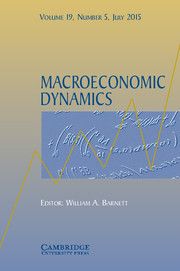
Switching to Good Policy? The Case of Central and Eastern European Inflation Targeters
in: Macroeconomic Dynamics, Nr. 8, 2020
Abstract
The paper analyzes how actual monetary policy changed following the official adoption of inflation targeting in the Czech Republic, Hungary, and Poland and how it affected the volatilities of important macroeconomic variables in the years thereafter. To disentangle the effects of the policy shift from exogenous changes in the volatilities of these variables, a Markov-switching dynamic stochastic general equilibrium model is estimated that allows for regime switches in the policy parameters and the volatilities of shocks hitting the economies. Whereas estimation results reveal periods of high and low volatility for all three economies, the presence of different policy regimes is supported by the underlying data for the Czech Republic and Poland, only. In both economies, monetary policy switched from weak and unsystematic to strong and systematic responses to inflation dynamics. Simulation results suggest that the policy shifts of both central banks successfully reduced inflation volatility in the following years. The observed reduction in output volatility, on the other hand, is attributed more to a reduction in the size of external shocks.

The Effects of Fiscal Policy in an Estimated DSGE Model – The Case of the German Stimulus Packages During the Great Recession
in: Macroeconomic Dynamics, Nr. 6, 2020
Abstract
In this paper, we analyze the effects of the stimulus packages adopted by the German government during the Great Recession. We employ a standard medium-scale dynamic stochastic general equilibrium (DSGE) model extended by non-optimizing households and a detailed fiscal sector. In particular, the dynamics of spending and revenue variables are modeled as feedback rules with respect to the cyclical components of output, hours worked and private investment. Based on the estimated rules, fiscal shocks are identified. According to the results, fiscal policy, in particular public consumption, investment, and transfers prevented a sharper and prolonged decline of German output at the beginning of the Great Recession, suggesting a timely response of fiscal policy. The overall effects, however, are small when compared to other domestic and international shocks that contributed to the economic downturn. Our overall findings are not sensitive to considering fiscal foresight.
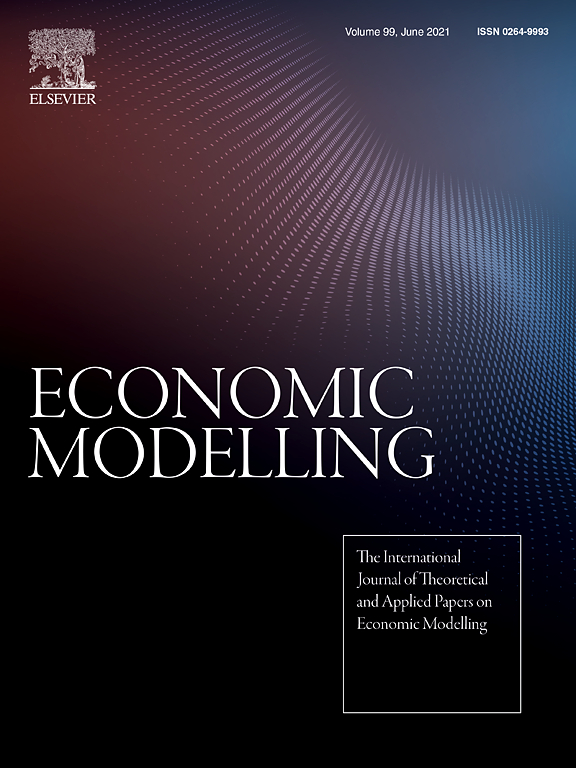
Employment Effects of Introducing a Minimum Wage: The Case of Germany
in: Economic Modelling, July 2020
Abstract
Income inequality has been a major concern of economic policy makers for several years. Can minimum wages help to mitigate inequality? In 2015, the German government introduced a nationwide statutory minimum wage to reduce income inequality by improving the labour income of low-wage employees. However, the employment effects of wage increases depend on time and region specific conditions and, hence, they cannot be known in advance. Because negative employment effects may offset the income gains for low-wage employees, it is important to evaluate minimum-wage policies empirically. We estimate the employment effects of the German minimum-wage introduction using panel regressions on the state-industry-level. We find a robust negative effect of the minimum wage on marginal and a robust positive effect on regular employment. In terms of the number of jobs, our results imply a negative overall effect. Hence, low-wage employees who are still employed are better off at the expense of those who have lost their jobs due to the minimum wage.
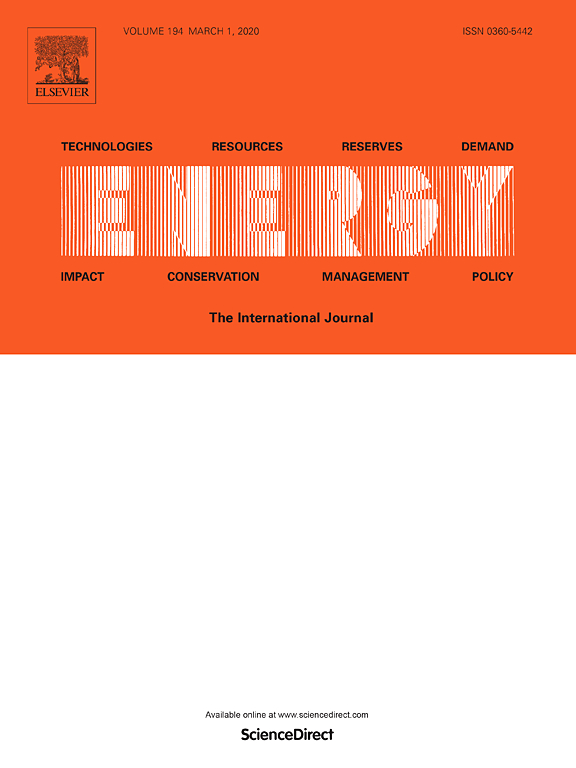
Coal Phase-out in Germany – Implications and Policies for Affected Regions
in: Energy, April 2020
Abstract
The present study examines the consequences of the planned coal phase-out in Germany according to various phase-out pathways that differ in the ordering of power plant closures. Soft-linking an energy system model with an input-output model and a regional macroeconomic model simulates the socio-economic effects of the phase-out in the lignite regions, as well as in the rest of Germany. The combination of two economic models offers the advantage of considering the phase-out from different perspectives and thus assessing the robustness of the results. The model results show that the lignite coal regions will exhibit losses in output, income and population, but a faster phase-out would lead to a quicker recovery. Migration to other areas in Germany and demographic changes will partially compensate for increasing unemployment, but support from federal policy is also necessary to support structural change in these regions.
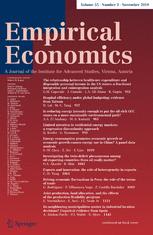
Nowcasting East German GDP Growth: a MIDAS Approach
in: Empirical Economics, Nr. 1, 2020
Abstract
Economic forecasts are an important element of rational economic policy both on the federal and on the local or regional level. Solid budgetary plans for government expenditures and revenues rely on efficient macroeconomic projections. However, official data on quarterly regional GDP in Germany are not available, and hence, regional GDP forecasts do not play an important role in public budget planning. We provide a new quarterly time series for East German GDP and develop a forecasting approach for East German GDP that takes data availability in real time and regional economic indicators into account. Overall, we find that mixed-data sampling model forecasts for East German GDP in combination with model averaging outperform regional forecast models that only rely on aggregate national information.
Arbeitspapiere
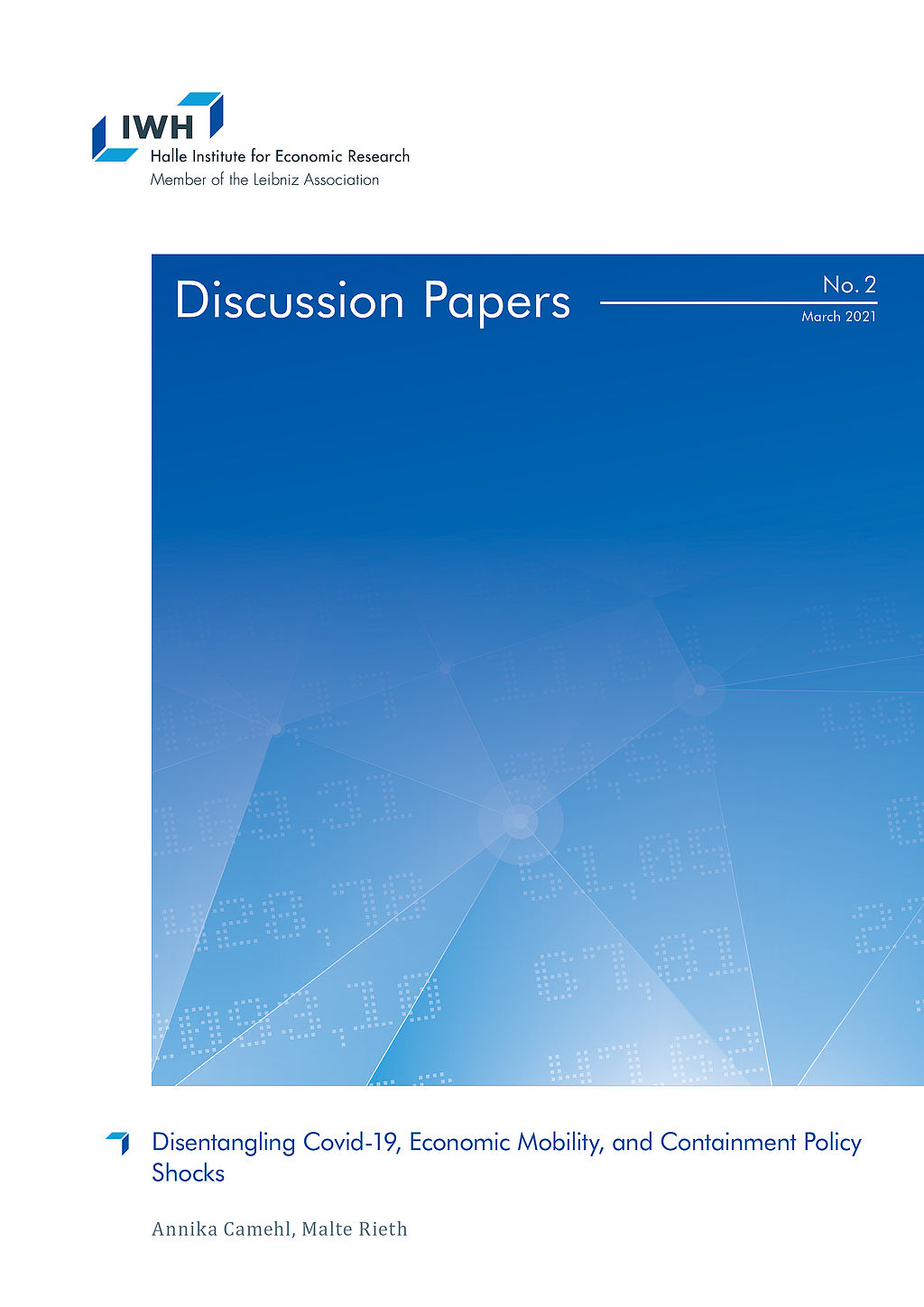
Disentangling Covid-19, Economic Mobility, and Containment Policy Shocks
in: IWH Discussion Papers, Nr. 2, 2021
Abstract
We study the dynamic impact of Covid-19, economic mobility, and containment policy shocks. We use Bayesian panel structural vector autoregressions with daily data for 44 countries, identified through sign and zero restrictions. Incidence and mobility shocks raise cases and deaths significantly for two months. Restrictive policy shocks lower mobility immediately, cases after one week, and deaths after three weeks. Non-pharmaceutical interventions explain half of the variation in mobility, cases, and deaths worldwide. These flattened the pandemic curve, while deepening the global mobility recession. The policy tradeoff is 1 p.p. less mobility per day for 9% fewer deaths after two months.
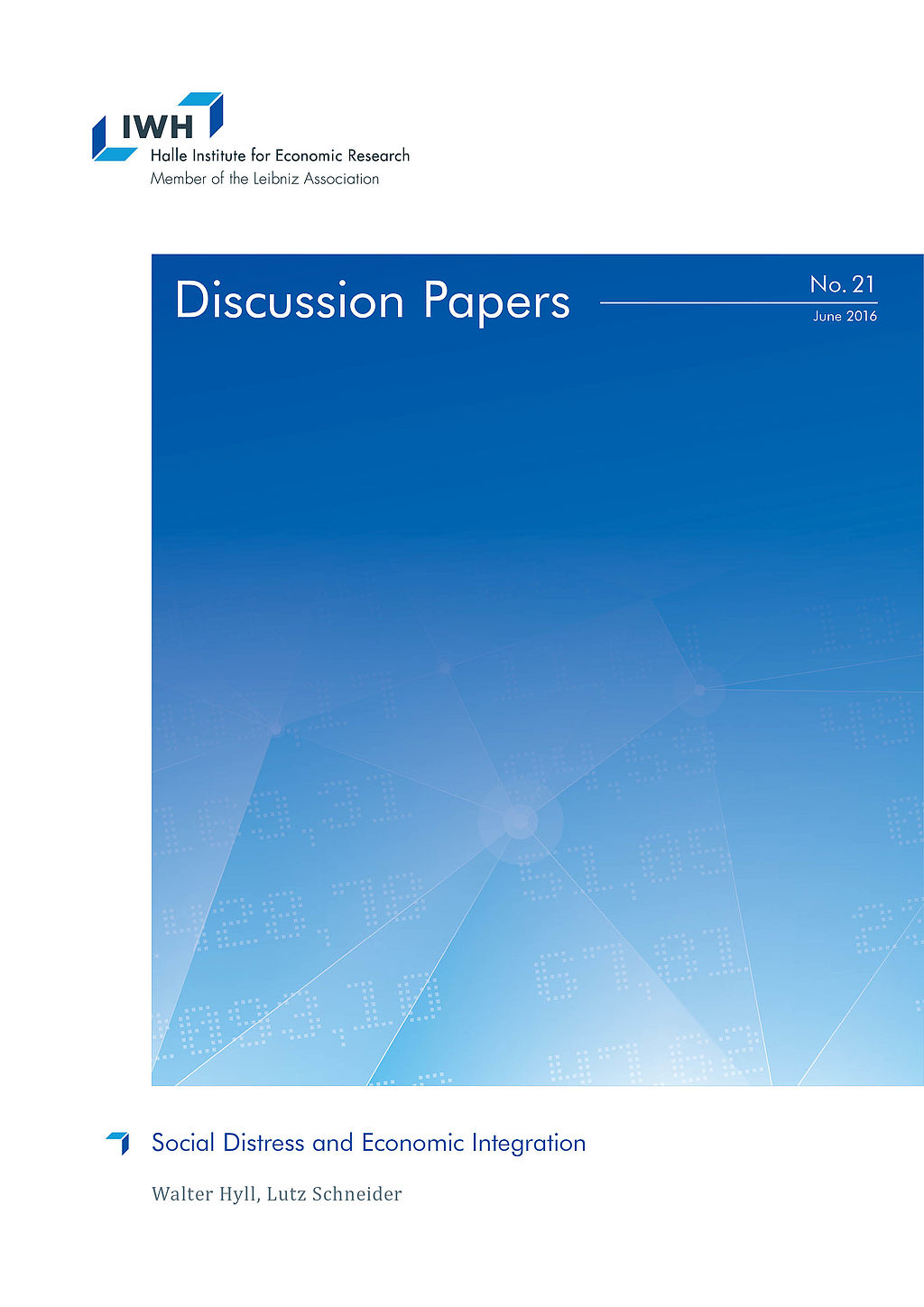
Exchange Rates and the Information Channel of Monetary Policy
in: IWH Discussion Papers, Nr. 17, 2020
Abstract
We disentangle the effects of monetary policy announcements on real economic variables into an interest rate shock component and a central bank information shock component. We identify both components using changes in interest rate futures and in exchange rates around monetary policy announcements. While the volatility of interest rate surprises declines around the Great Recession, the volatility of exchange rate changes increases. Making use of this heteroskedasticity, we estimate that a contractionary interest rate shock appreciates the dollar, increases the excess bond premium, and leads to a decline in prices and output, while a positive information shock appreciates the dollar, decreases prices and the excess bond premium, and increases output.
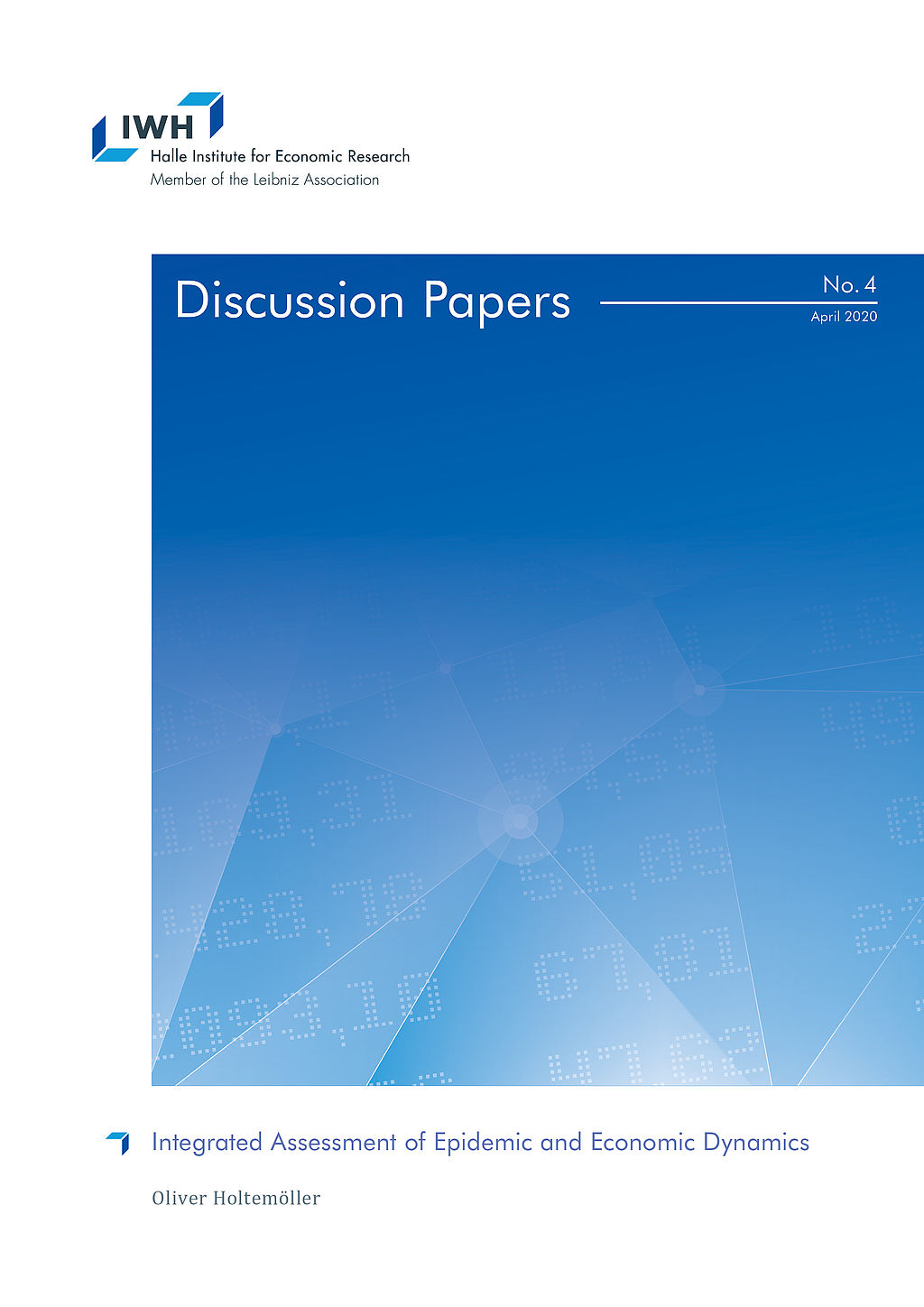
Integrated Assessment of Epidemic and Economic Dynamics
in: IWH Discussion Papers, Nr. 4, 2020
Abstract
In this paper, a simple integrated model for the joint assessment of epidemic and economic dynamics is developed. The model can be used to discuss mitigation policies like shutdown and testing. Since epidemics cause output losses due to a reduced labor force, temporarily reducing economic activity in order to prevent future losses can be welfare enhancing. Mitigation policies help to keep the number of people requiring intensive medical care below the capacity of the health system. The optimal policy is a mixture of temporary partial shutdown and intensive testing and isolation of infectious persons for an extended period of time.
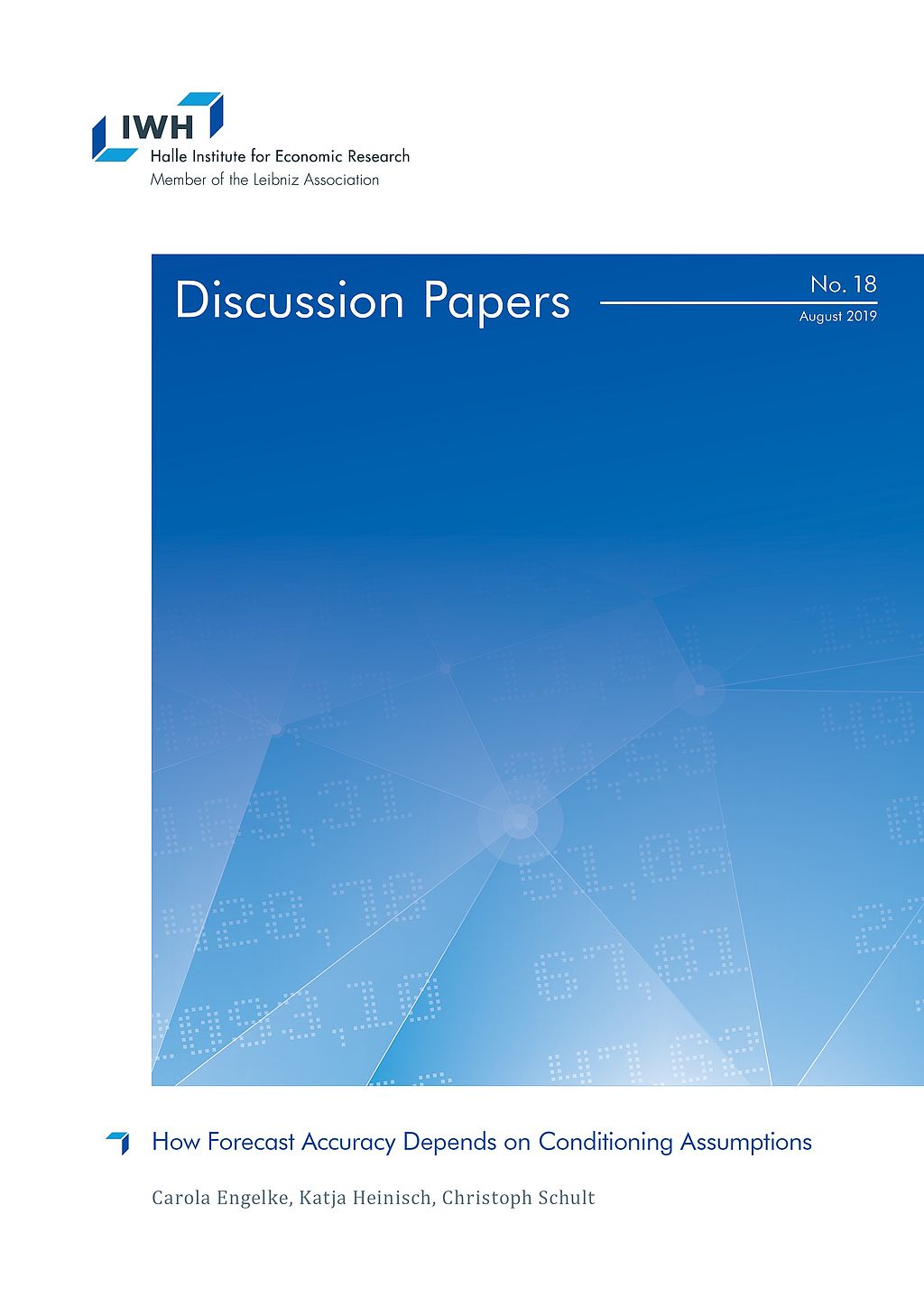
How Forecast Accuracy Depends on Conditioning Assumptions
in: IWH Discussion Papers, Nr. 18, 2019
Abstract
This paper examines the extent to which errors in economic forecasts are driven by initial assumptions that prove to be incorrect ex post. Therefore, we construct a new data set comprising an unbalanced panel of annual forecasts from different institutions forecasting German GDP and the underlying assumptions. We explicitly control for different forecast horizons to proxy the information available at the release date. Over 75% of squared errors of the GDP forecast comove with the squared errors in their underlying assumptions. The root mean squared forecast error for GDP in our regression sample of 1.52% could be reduced to 1.13% by setting all assumption errors to zero. This implies that the accuracy of the assumptions is of great importance and that forecasters should reveal the framework of their assumptions in order to obtain useful policy recommendations based on economic forecasts.
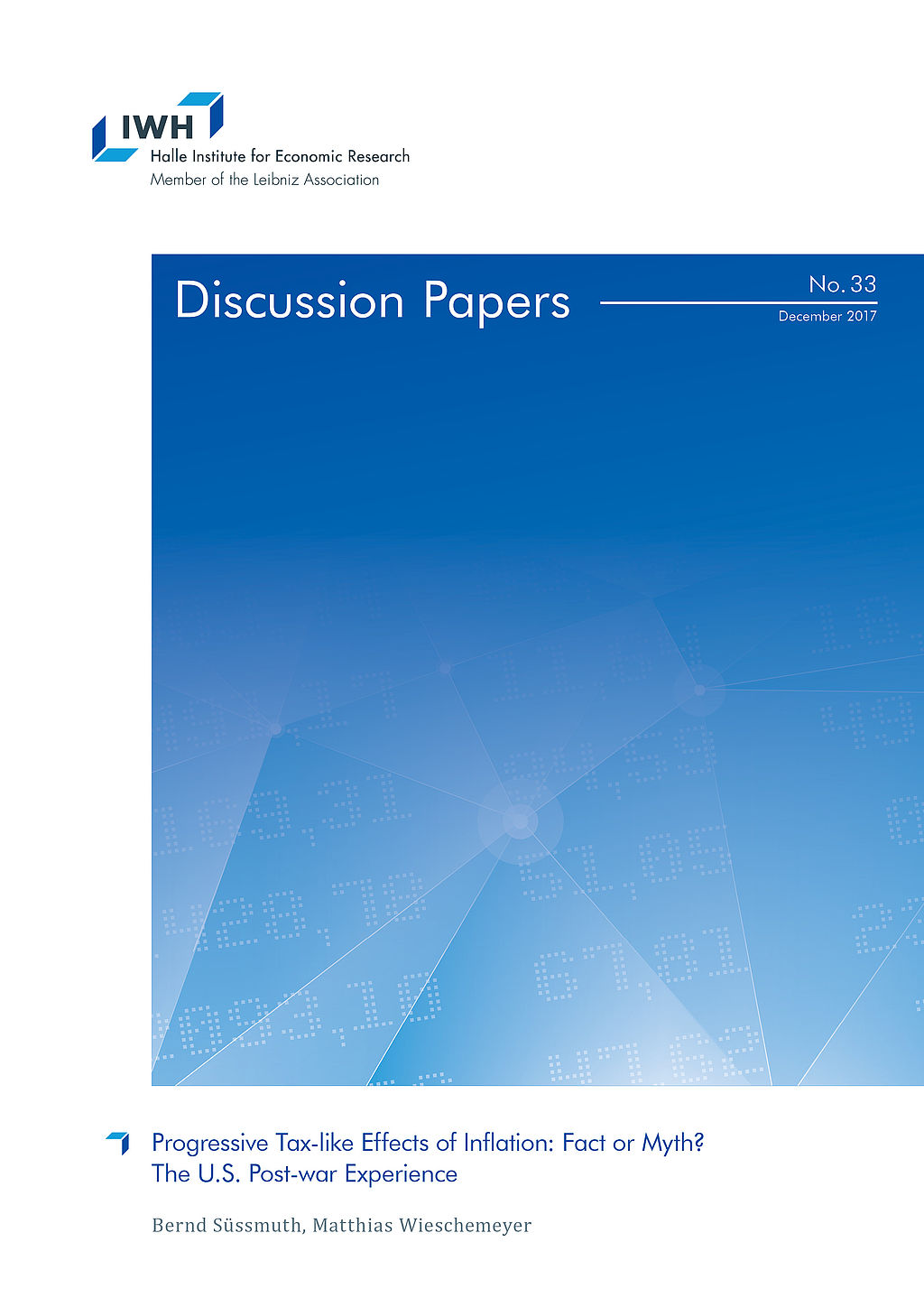
Progressive Tax-like Effects of Inflation: Fact or Myth? The U.S. Post-war Experience
in: IWH Discussion Papers, Nr. 33, 2017
Abstract
Inflation and earnings growth can push some tax payers into higher brackets in the absence of inflation-indexed schedules. Moreover, inflation may affect the composition of individuals’ income sources. As a result, depending on the relative tax burden of labour and capital, inflation may decrease or increase the difference between before-tax and after-tax income. However, whether some and if so which percentiles of the income distribution net benefit from inflation via taxation is a widely unexplored question. We make use of a novel dataset on U.S. pre-tax and post-tax income distribution series provided by Pike ty et al. (2018) for the years 1962 to 2014 to answer this question. To this end, we estimate local projections to quantify dynamic effects. We find that inflation shocks increase progressivity of taxation not only contemporaneously but also with some repercussion of several years after the shock. While particularly the bottom two quintiles gain in share, it is not the top but the fourth quintile that lastingly loses.

















